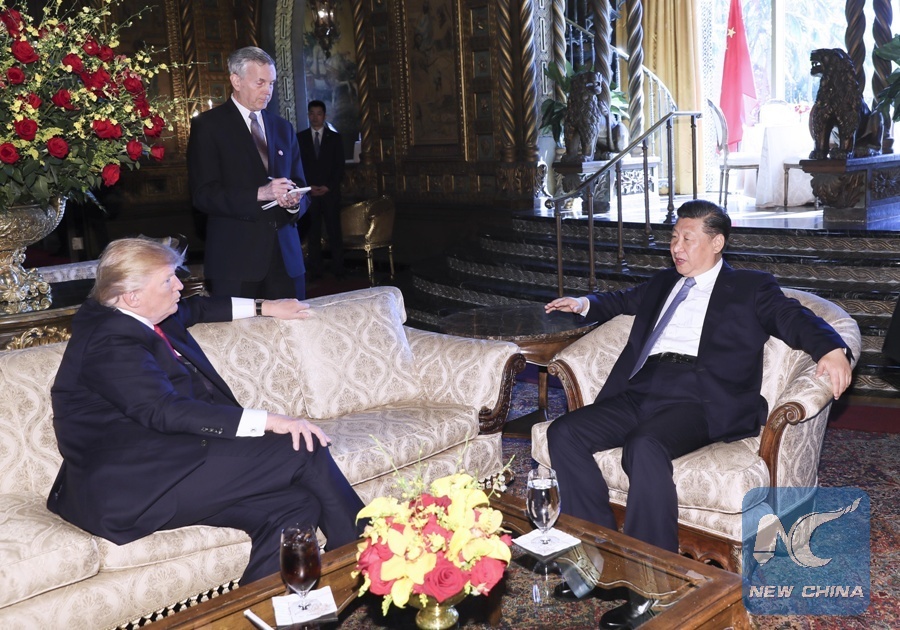
We can't go on like this
On October 4, 2018, U.S. Vice President Mike Pence delivered a speech at the Hudson Institute, accusing the Chinese government of orchestrating an aggressive military, economic, and political campaign to expand its influence inside the United States and across other regions of the world. The speech was described as “highly anticipated” and “landmark” by the U.S. media and analysts.
Hours later, Ministry of Foreign Affairs of China responded to several key points of the speech, calling the accusation against China “groundless”.
It seems the China-U.S. relationship has entered a challenging stage. In the past, bilateral relations experienced ups and downs, but with efforts from both sides, the relationship remained stable and cooperative. However, competition now dominates relations, and the engagement and cooperation can no longer hold the two countries together. In March 2018, one of America’s leading China experts David M. Lampton said in an interview that neither China nor the United States had leaders that were, in all likelihood, inclined or able to reverse course until the costs become much heavier for both sides. Similarly, Vice President Pence’s speech highlighted the U.S’ negative impression of China.
China is trying to figure out the roots of the U.S.’ policy shifts.
First of all, China is aware of the U.S. concern about world leadership. Pence listed a number of issues about China’s rise, including increasing military expenditure and growing capabilities in the East and South China Seas. However, all of those are superficial differences for the two countries. What the United States seriously worries about is China’s development in advanced industries, growing regional and global influence, the country’s attempt to contest America’s geopolitical advantages, and its efforts to change the internatinal order in its own favor. The great power competition focuses on the future of power. The U.S. is aiming to secure its advantages in the next few decades.
Secondly, the failure to “shape” China has also caused frustration. From the Clinton administration to the Obama administration, U.S. policy towards China have covered a wide range of issues such as human rights, intellectual property, non-proliferation, and cyber security. While serving U.S. interests, the policies are aimed at shaping China’s behavior. The “engagement and containment” as well as the “carrot and stick” policies targeted China’s development model. The United States believed that this would fit China into its own schedule. The U.S. also attributed China’s development to its support.
However, China did not set up a Western democratic system domestically, but established socialism with Chinese characteristics. China’s decision to build the country into a great modern socialist country that is prosperous, strong, democratic, culturally advanced, harmonious, and beautiful by the middle of the century, is viewed by the Untied States as a plan to replace the U.S. as the “world leader”. At the same time, major country diplomacy with Chinese characteristics aims to foster a new type of international relations and build a community with a shared future for mankind, which is taken by the U.S. as China’s ambition to challenge the international order.
The frustration also comes from a failure to force China to accept U.S. conditions for bilateral trade and U.S. appeals to resolve regional issues. The lack of obvious effect of the freedom of operation navigation operations undermines the confidence of the U.S. regional alliance. The failure has resulted in strategic concern. Accordingly, the vice president of the United States warned that “China has sought to advance its strategic interests across the world, with growing intensity and sophistication”, yet “previous administrations all but ignored China’s actions.”
Thirdly, suspicion of China has become common in U.S. strategic, acadeimic and political circles. Both the president and the vice president of the United States accused China of initiating “an unprecedented effort to influence American public opinion, the 2018 elections, and the environment leading into the 2020 presidential elections”. Bipartisan agreement covers trade, maritime issues, cyber security, and cross-strait relations. The U.S. is working on a vision of “a free and open Indo-Pacific”, which aims at providing alternatives to China’s Belt and Road Initiative. The U.S. also tries to create barriers for Chinese media and think tanks operating overseas.
Faced with more complicated factors in the China-U.S. relationship, China stressed the consistency of its principles and policies. China adheres to socialism with Chinese characteristics, and will not surrender under U.S. pressure. China will also support the diversification of development all over the world. It is time for the United States to try to view China from an objective perspective and accept the fact that it is unlikely for any country, including the U.S., to contain China.
For the China-U.S. relationship, China stressed the principles of non-conflict, non-confrontation, mutual respect, and win-win cooperation. Mutual respect is of key importance for bilateral ties. The United States should try to sort all the relevant issues into different levels. The issues related to core interests, like the ones concerning sovereignty and territorial integrity are to be dealt with particularly carefully. The issues that benefit both countries such as bilateral trade should not be mixed up with sensitive regional issues including the denuclearization of the Korean Peninsula.
Currently, China and the United States are riding on the same boat. Any drastic actions that can overturn the boat will harm the interests of both sides. Therefore, whilst resetting the relationship is difficult, it is worthwhile for both sides to try.
